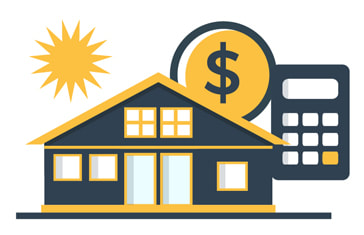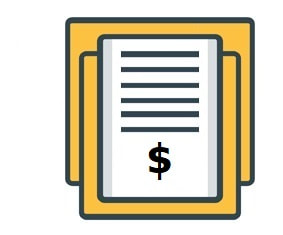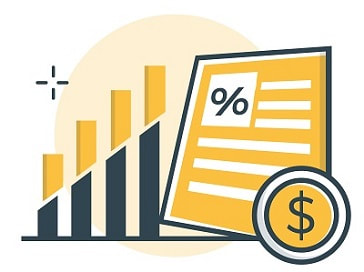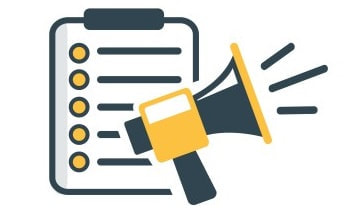The Best House Price & Valuation Websites - The Definitive New Zealand Guide
Our guide explains the purpose of house valuations, the main types of valuations and the top house price and valuation websites. We also list must-know facts and frequently asked questions regarding house valuations.
Updated 24 January 2024
Summary
To help you get an understanding of house price data and the tools available, our guide covers:
Summary
- Buying property is one of the biggest financial decisions you’ll ever make. A property valuation is essential when considering buying or selling a property. However, the property valuation process has historically been extremely expensive, frustrating and time-consuming.
- Whether buying your first home, an investment property or selling your family home, there are 10+ websites listing a number as to what the property is worth. However, in an industry where house prices can become opaque and the market changes rapidly due to all sorts of external factors, it's important to find the most reliable sources to get the most informed on where the housing market is going.
- Property valuation websites can be an amazing tool to assist New Zealanders in house-buying. However, there are many different types of valuations. Real estate agents, government valuation officials, market research reports, and auction houses can all be wildly different. With this in mind, knowing the best websites for house price valuations is important.
- Remember - Land is the biggest driver of house prices. There are various examples of larger sections with old houses being worth much more than big houses on smaller sections in the same neighbourhood.
- Beyond the property valuation websites, we suggest reading the property section of interest.co.nz, which thoroughly covers all pricing movements and other industry news that is often relevant to property prices. It's based on data, not opinion, and helps build a strong understanding of New Zealand's volatile property market.
To help you get an understanding of house price data and the tools available, our guide covers:
MoneyHub Founder Christopher Walsh shares his insights about property price websites:
|
"There have never been more websites telling you the 'value' of a property in seconds. However, it's arguable that you get what you pay for in terms of accuracy and their numbers are by no means a final answer. The best thing to do is make a full market comparison while undertaking thorough research".
"Some of the websites rely on capital value (CV) which can be up to three years out of date. Others look at numerous data points (recent sales being one of them), which is more helpful but still has limitations as it's all automated and the prices won't address property-specific factors". "My suggestion is simple - to get a house price estimate, take an average of all the prices you see listed on sites such as Homes.co.nz, Property Value and OneRoof. Homes.co.nz also has a useful map with recent sales in the area and current properties for sale. This will give you some insights and more data points. But, with so much in the property market changing, there's certainly no science behind the 'prices' being listed". "If you're selling, estate agents have the best insights into what you should list your property for (or set it as a reserve at auction). They want the best result for you but don't want an overpriced property sitting on their books. If you're buying, the market has suddenly swung in your favour. For this reason alone, it's a real possibility the prices you see online will be 'above market' as the data points lag and don't consider the current "buyers' market". I suggest reading the property section of interest.co.nz, which thoroughly covers all pricing movements and other industry news that is often relevant to property prices". "Whatever you're using the online tools for, you'll make better decisions with as much data as possible and a good understanding of the current market via sites like interest.co.nz, which will help you converse with the myriad of real estate agents you deal with". |
MoneyHub Founder
Christopher Walsh Websites to consider for prices: |
How do House Valuation Websites Work?
Most online property valuation websites use algorithms known as Automated Valuation Models (AMVs), which analyse data from different public and private sources. The AVMs will consider variables such as the prices of the surrounding houses, unique features of the home, relative size, amenities or perks and the previous sale history of the property.
Why do I need a property valuation?
- Nobody wants to overpay for a property. To accurately estimate a property's value, it's necessary to take multiple approaches to value property. Researching multiple websites ensures that you're in the best position possible when negotiating and putting in a bid on auction day or putting in a tender or offer with the agent. The goal is always to avoid overpaying and giving you the best chance of a long-term profit.
- There are many ways to calculate the value of a property. The most common is to have the property valued by a registered property valuer. A formal property valuation is typically done when considering a formal bid or identifying a reserve price to set at auction if you sell. However, getting a registered property valuer to value a property typically costs a lot.
- Because of the upfront costs, the most cost-effective and easiest way to get a general idea of the value of a property is to use one of the online property valuation websites. For most New Zealanders, this will be the first starting point.
What are the main criteria to look for in a house valuation?
- Many different variables go into how much a house is worth. Factors such as whether the house is renovated or historic, new or old, and many other characteristics contribute to house price valuations. Therefore, it’s important to identify and separate all these things when searching for house prices.
- Before reading our review of the best property valuation websites, remember to take online house price valuations with a pinch of salt. Never rely on the figures given. Most of the time, these figures can vary depending on how recent the sale was, whether it’s the asking price, the reserve price, or any other factors that are not easily translatable to the property’s actual value.
- There are several similarities between the top house price valuation websites. First, many sites receive monthly data from regional councils regarding transaction numbers and pricing. Secondly, most house price valuation sites can filter by key housing criteria. But not all of the websites have the same access to data or deliver a consistent estimate. Some of the other differentiation points between the websites include:
- Usability (for example, whether they have a native mobile app for android or IOS)
- How many properties are listed on the platform?
- How credible is the website? (startup vs been in the market for decades)
- Different types of properties (apartments, houses, bare land)
- How popular is the website? (page views)
- Does the site have analytic tools?
- House price history (when it was bought/sold and for how much)
Use the best tools and resources to help estimate any property value
|
Free online tools give you numbers, but you'll need to find more data to get anywhere close to the best estimate. To help you succeed and become the most informed possible, we suggest the following before contacting any real estate agent:
|
"I strongly suggest reading interest.co.nz's property section. It arguably offers the best NZ property insights - all based on the latest data, not opinion".
- MoneyHub Founder Christopher Walsh |
The Best Property Valuation Websites
There are two main types of property valuation sites that are detailed below:
Know This:
- Professional Valuation Services
- Freemium Valuation Websites
Know This:
- Some property valuation sites have unique algorithms to estimate the value of a home in a specific region based on comparable houses (similar size, region and different features). They also utilise other public and private databases.
- The 10+ websites listed below are some of the most widely-used New Zealand actual property websites. Evaluating two or three of these websites is a popular way to get the most accurate property valuation possible.
- Most websites are free, meaning there’s no additional cost to check multiple websites.
- By taking the estimated price from each website below and averaging the prices, you're much more likely to get a more accurate valuation for the property. Additionally, it ensures that you aren't looking at a value that’s way off compared to valuations from the other websites.
1. Professional Property Valuation Websites
- A professional property valuation will likely provide you with the most up-to-date estimate of properties. When you request a property report, the valuation is done using real-time information rather than historical sales and market data.
- Professional property valuation reports can cost anywhere from a few hundred dollars to thousands depending on the extensiveness and level of depth in the report. Professional property reports consider characteristics like the property's size, type and amenities. Additionally, the quality of the building materials and the expected ability to generate income relative to the area are also considered.
- Banks require a professional property valuation to get a mortgage application approved. Banks will require a professional property valuation report as a prerequisite to get a mortgage application approved. Property valuation reports give banks the confidence that the property price in the mortgage application is accurate.
- Paid valuation reports will generate a comprehensive file compiling all the relevant property records into a single document. As a result, paid valuation reports can be extremely valuable for prospective customers, whether you understand the true value of what you're buying or for potential bidders that need a little more convincing before auction day.
- A comprehensive property valuation is crucial to the property purchase/sale process. A property valuation report can give you insights into the particular suburb you’re looking at and can be used to support your mortgage application to lenders or banks.
Below are the top paid property valuation sites:
Quotable Value (QV)
More Details: Quotable Value (QV)
Summary:
Valuation Reports and Costs:
Summary:
- QV is one of the most extensive property valuation databases in New Zealand. QV offers access to detailed property reports alongside general recommendations and market trends. QV also provides several calculators that analyse the property's affordability and expected return profile.
- QV is owned by the New Zealand Government as a state-owned enterprise. QV provide full commercial market valuations for New Zealand properties. QV’s underlying data is provided by privately owned company CoreLogic, the largest property statistics and analytics platform in the United States, New Zealand and Australia. CoreLogic helps consumers identify and take advantage of opportunities, enhance overall real estate investment performance and mitigate risk. CoreLogic’s technology-based offerings are considered "cutting edge" and the most up-to-date in the market. This high-quality data is one of the main reasons QV is priced so highly.
- QV provides some information for free (such as a CV valuation), but the full commercial valuation reports typically cost money. CostBuilder, QV’s analytics tool and used within the construction industry, is charged on a subscription basis.
Valuation Reports and Costs:
- QV offers valuations from a one-off $24.99 price per their services page.
Property Value - Capital Value (CV) as assessed by Local Councils
More Details: Property Value
Summary
Know This: CVs do not precisely value a property. Instead, CVs are the approximate price the market would have paid at the time of the valuation (which can be up to three years old). Because of this, the CV price displayed can vary widely from other property valuation websites.
Valuation Reports and Costs:
Summary
- Property Value is owned by CoreLogic, a government enterprise, and sells reports in addition to its free data.
- All property prices are based on the most recent CV. As a background, CV stands for capital value. It is an estimate of the price of a property, taking into account a range of elements, including the price of the land itself, the price of the building, any enhancements made to the land, and the average household income in the surrounding region.
- All CVs are calculated every three years by each regional Council in New Zealand. For example, the most recent Capital Value revaluation was done in June 2021 for the Auckland region. You can find the latest CV via your local authority's website - we list Auckland, Waikato, Wellington, Nelson and Canterbury for relevance.
- CVs are calculated through a mass appraisal method. In other words, valuers approximate and don’t go through a valuation process for each home individually. Instead, when the council assesses the cost of a property, it considers the following factors:
- First, what residences are going for in the nearby area.
- The type of property – standalone house, townhouse, commercial property, etc.
- Datapoints generated from market surveys.
- Adjustments that have been made to a property.
Know This: CVs do not precisely value a property. Instead, CVs are the approximate price the market would have paid at the time of the valuation (which can be up to three years old). Because of this, the CV price displayed can vary widely from other property valuation websites.
Valuation Reports and Costs:
- Property Value offers real-time Property Reports for a one-off $29.95 fee. The report claims to access estimated property valuations in real-time, provide detailed property information, list recent comparable sales information from nearby properties and provider suburb market insights.
2. Freemium Property Websites
Freemium Property Websites typically provide a quick, easy, and free way to estimate the approximate value of a property. “Freemium” websites normally provide a basic level of service for free to attract users, then earn money through selling additional services such as market suburb research, comprehensive valuation reports or premium subscriber features. Public data that anyone can access is typically free, whilst the premium features draw from private, proprietary sources.
Below are some of the top freemium property websites:
Below are some of the top freemium property websites:
Homes.co.nz
More Details: Homes.co.nz
Summary:
Summary:
- Homes.co.nz is one of the leading property research platforms in New Zealand. It has some of the easiest-to-use analytics tools compared to other platforms.
- Whether you’re a homeowner, buyer or seller, homes.co.nz has various tools to assist you in making better decisions.
- Homes.co.nz is free to use and does not require a subscription to access. As of August 2021, Homes.co.nz has been acquired by TradeMe Property.
- Homes.co.nz uses a simple-to-use map that shows what similar properties are currently for sale, what nearby properties are worth and the price history for each home. Additionally, homes.co.nz analyses and estimates the likely water and utility charges associated with purchasing the property. These value-add features make it a high-quality platform for buyers looking at their next purchase or sellers looking to get full market value from their property.
- Homes.co.nz has a “HomesEstimate” feature that estimates the market cost of a property, driven by an underlying proprietary formula.
- Homes.co.nz uses thousands of valuations as a model template to estimate the value of more than 1.5 million homes across New Zealand. Whilst it isn’t a formal valuation, it can be a useful starting point when figuring out how much a house is worth (and how much you should be willing to buy/sell it for).
Trade Me Property Insights
More Details: Trade Me Property Insights
Summary:
Summary:
- Trade Me is one of New Zealand’s most popular marketplace websites.
- The values are generated through their algorithms, which use a mixture of public facts (like rateable value or CV), preceding property prices and accessible property data (such as construction date or ground size).
- These computer-generated estimates of a house's price are shown on a map with users then able to click on an address and see a detailed report with a price estimate free of charge.
MyValocity
More Details: MyValocity
Summary:
Summary:
- MyValocity is primarily an insights dashboard drawn from up-to-date property information. MyValocity’s free dashboard allows users to track their property equity and sale value over time. In addition, MyValocity has several insightful valuation reports that can assist in the property purchase/sale process. Unfortunately, you will need to pay for most of these.
- Compared to other alternatives, MyValocity holds relatively less predictive analytics capabilities and does not estimate the value of New Zealand properties based on market factors. In contrast to Homes.co.nz and Trade Me Property, which provide these analytics for free, MyValocity charges additional fees for additional analytics.
- In addition, most of MyValocity's insights cost money, and you could easily spend hundreds of dollars on each property. Again, this contrasts with other property valuation sites that provide much more information for much less money.
- MyValocity is part of Valocity, a New Zealand-based property valuation technology company that generates insights for banks, mortgage providers and lenders.
OneRoof
More Details: OneRoof
Summary:
Summary:
- OneRoof leverages various public records to estimate the value of a property. OneRoof mainly uses nearby comparable properties' sale and rental prices, council valuations and general market trends.
- These data points use a valuation model to estimate a property's worth. OneRoof has similar features to the other websites listed above.
Relab
More Details: Relab
Summary:
Summary:
- Relab provides property price data, insights and tools by analysing sales history, ownership and title records, underground infrastructure and Council planning details to school zones, flood hazards, easements, caveats and more.
- Relab provides basic data and has a subscription model.
Use the best tools and resources to help estimate any property value
|
Free online tools give you numbers, but you'll need to find more data to get anywhere close to the best estimate. To help you succeed and become the most informed possible, we suggest the following before contacting any real estate agent:
|
"I strongly suggest reading interest.co.nz's property section. It arguably offers the best NZ property insights - all based on the latest data, not opinion".
- MoneyHub Founder Christopher Walsh |
House Valuations - Three Must-Know Facts
1. House valuations are largely determined by the nation's ability to take out and maintain mortgage payments. However, be wary that this landscape is changing as of 2022.
2. Estimates from valuation websites may not include additional renovations and other changes.
3. Don’t just rely on online property valuation websites. It's a good idea to obtain multiple data points.
- With rising inflation and interest rates, servicing a mortgage will likely become increasingly difficult. Both of these, coupled with pressure on businesses and weakening consumer confidence, may lead to job layoffs. Both these show signs that house prices may drop in the short to medium term.
- The biggest risk is buying a house at $1.5m with a $1m mortgage and seeing the price drop to $1m, effectively wiping out all your equity that you’ve spent a decade saving.
2. Estimates from valuation websites may not include additional renovations and other changes.
- It’s important to note that many property estimates will not include data that isn’t easily accessible, such as the latest renovations or improvements to a house’s interior or the foundations.
- Many older properties will need renovating from time to time, and this may not always show up in the estimated valuations. You’ll need to estimate the rough value of those valuations (for example, a kitchen renovation might be estimated to cost $50,000 and add a similar amount of value of the property).
3. Don’t just rely on online property valuation websites. It's a good idea to obtain multiple data points.
- It’s important to remember that most valuation websites only estimate a property’s value. Once you’ve got a rough idea of the property and are keen to move forward with the purchase/sale, arranging a registered property valuer to do a formal valuation is often recommended to reduce the risk of overpaying. It may cost more, but you’re potentially spending millions of dollars, so it pays to get the right valuation.
- Using the online property sites is just the first step in understanding the price of your house. We suggest cross-checking your house price on multiple websites and taking an average to ensure you get the most holistic and accurate estimate of your home.
- While most of these property valuation sites are free, you’ll most likely want to get professional reports to validate the price of your house when dealing with formal documentation or if you’re going through the transaction process.
Frequently Asked Questions
These websites are good at telling me what my actual house is worth, but where do I go to find prices for houses in my area?
Most property websites provide monthly or quarterly market updates on the property market by region, which should help your research identify the selling prices for houses in your area. Alternatively, the REINZ house price index is produced and updated monthly and is segmented by region.
What are some of the main factors determining a house's price?
Many different factors go into determining the price of a house. Some of the most important factors include:
- Location (quality of the neighbourhood)
- Size
- Number of bedrooms, bathrooms and living areas
- Type of property (standalone house, townhouse, apartment)
- Legal title of the property (leasehold vs freehold)
- Quality of buildings/foundations
- Amenities and additional features
- Demand/interest in the property compared to other houses
There’s a large difference between my house value using different websites. So what’s the real value of my house?
There’s no “exact value” for your house. Most properties are priced where the housing supply meets the demand for those houses. Because many sites pull from different sources and consider different variables, the estimated value for your house may vary. However, most estimates will be within 10%-20% of each other and rarely fall outside this range. So, it's important to check your house price using multiple valuation websites and average the data to get a better estimate of the value of your home.
There’s a 20%+ difference between what my house is worth between websites. Is it right for me to use the highest price?
It’s important to recognise that the price is not the only consideration. What you want from your property valuation is the most accurate valuation possible (e.g. what you could sell your house for in today’s market). So the 'best' house price websites are not the ones that list the highest price for your home but the most accurate price based on a whole host of factors.
What’s the difference between valuations from valuers and online websites?
Valuers typically charge for their services and valuations (such as QV), whereas property websites estimate the value of your home. The main reason people pay for valuers to generate reports on their home is the credibility and ability to rely on that valuation regarding mortgage applications, property transactions or collateral as proof of asset value. Online estimates may be out of date and for this reason a valuer will take into account the most recent property sales nearby, property specifics and many other factors.
Does the The Real Estate Institute of New Zealand provide individual property prices?
No - that is not what it's designed to do. Instead, the Real Estate Institute of New Zealand (REINZ) is the countrywide expert affiliation for New Zealand’s actual property sector. It is an employer that affords lookup and well-informed recommendations to media, government, opposition, expert contributors of the property sector and the public on a variety of troubles affecting the property market.
More Details: The Real Estate Institute of New Zealand
More Details: The Real Estate Institute of New Zealand
Can I find out house prices at an open home?
Yes - while not as instant as checking house prices online, one of the most hands-on ways to get to know the property market is to attend open homes for houses on the market. Attending open homes in your area is a great way to get “on the ground” insights into the market.
However, one drawback of open homes is that you can only look at homes currently being sold on the market. In contrast, an online house valuation website allows you to find and estimate the price of properties that aren't actively on the market. Therefore, online house valuation websites will have more data from all homes rather than just homes actively selling.
However, one drawback of open homes is that you can only look at homes currently being sold on the market. In contrast, an online house valuation website allows you to find and estimate the price of properties that aren't actively on the market. Therefore, online house valuation websites will have more data from all homes rather than just homes actively selling.
What other factors should I consider before buying a house?
Consider getting a pre-purchase inspection performed. These reviews are usually paid for through buyers. We suggest reading our extensive list of house buying tips and must-know facts.
Use the best tools and resources to help estimate any property value
|
Free online tools give you numbers, but you'll need to find more data to get anywhere close to the best estimate. To help you succeed and become the most informed possible, we suggest the following before contacting any real estate agent:
|
"I strongly suggest reading interest.co.nz's property section. It arguably offers the best NZ property insights - all based on the latest data, not opinion".
- MoneyHub Founder Christopher Walsh |
Related Guides
Buying a Home Guides:
Selling a Home Guides:
Buying a Home Guides:
- First Home Buyers Checklist
- Home Buying Glossary
- New Zealand Property Types
- Leasehold Property Guide
- Conveyancing
- Rateable Value and Market Value
- Buying an Apartment in New Zealand
- Tiny Homes in New Zealand
Selling a Home Guides:
















